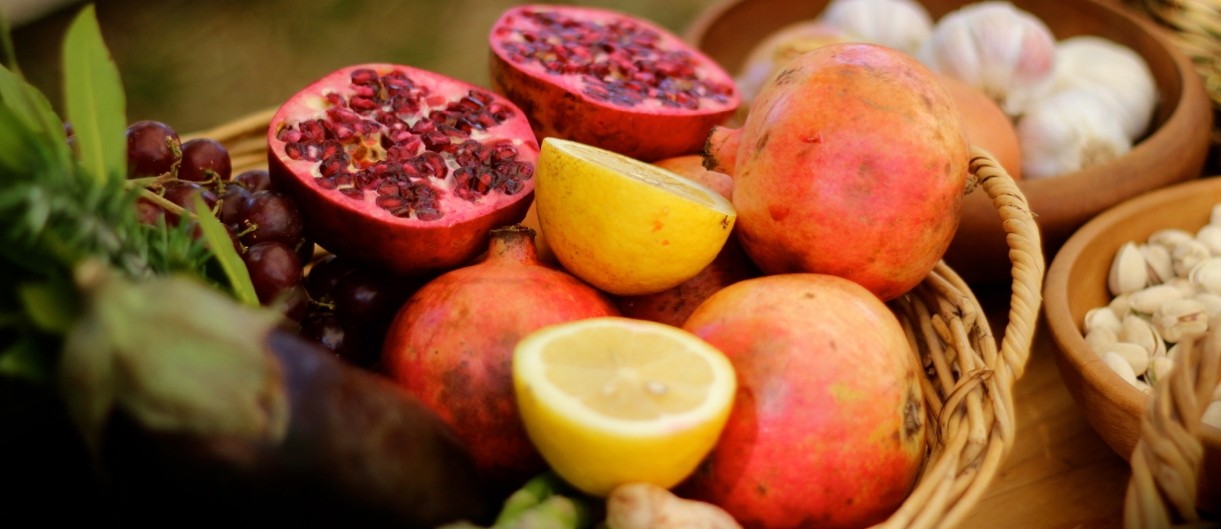Hop, skip and jump into a health spring
Accredited practicing dietitian, Rosalyn D’Angelo answers the most common question she gets asked as a dietitian at this time of the year - ‘how do I shed the winter weight?’
Spring has officially sprung and after a long winter, it feels amazing to take off my big heavy coat and start to enjoy longer days, longer walks and iced lattes.
If you have let your nutrition slip a little this winter and are looking to boost your energy and hop, skip and jump in to the new season, here are my top tips.
1. Fill up on vegetables – at least 5 serves a day.
They’re full of fibre. Fibre has 0 kilojoules, and it keeps us fuller for longer. A chicken sandwich with lettuce, tomato, carrot, onion, bean shoots and mushroom has almost exactly the same amount of kilojoules/calories as a plain chicken sandwich. Only difference is that the fibre in the first sandwich will keep you fuller for longer and will slow the release of the carbohydrate in to your bloodstream, giving you a longer lasting form of energy. This might mean you actually need a much smaller portion of food to feel satisfied. Not to mention, those low kilojoule veggies also have a heap of micronutrients which help your body repair and flourish. Challenge yourself to add veggies to all your main meals. Extra points for a veg based snack too!
Check out which veggies are in season this spring. Google some recipes and try something new.
Other ways to up your fibre include enjoying wholegrains, beans/lentils/legumes, fruit and nuts.
2. Make sure you’re getting a variety of foods from all the food groups. Think vegetables, fruit, wholegrains, dairy, meat and fish and/or alternatives. If there’s something you don’t like eating, make sure you’re replacing it with a food that gives you similar nutrients. For example, if you don’t eat red meat, ensure you’re getting enough iron from iron fortified cereals, wholegrains, beans, lentils, nuts and spinach. If you don’t like cow’s milk, ensure your almond or soy milk is calcium fortified.
3. Swap processed snacks to whole foods.
Instead of a chocolate bar, try a few dates and a handful of almonds. Instead of ice cream, try some blended frozen banana. Hot chips? Try some baked sweet potato with some herbs. By doing this, you’re going to get much less sugar, salt and saturated fat, and way more micronutrients and fibre.
4. Hydrate!
I can’t say it enough. We often mistake thirst for hunger, and reach for a snack when we actually need a big glass of water. One of the first signs of dehydration is feeling a little flat. Keep a drink bottle on you. Every little bit helps.
5. Stop non hungry eating.
We all do it. But if it’s getting in the way of you reaching your health goals, it needs to be addressed.
We tend to finish everything on our plate, whether we need it or not. Could you have a smaller portion size and be satisfied? We get the most pleasure from the first mouthful. So instead of a huge piece of cake, are you happy with a few bites? There is no food you can never have, it’s all about portion and moderation.
Bring your attention to eating, rather than snacking while checking emails or watching TV.
Slow down the eating process, and stop eating when you start feeling full.
For more info, check out ‘Non hungry eating: why we do it and how to manage it’
6. Move more whenever you can, in ways that you enjoy.
You don’t need to go to the gym 5 days/week or force yourself to do exercise that you don’t like to be in good shape. If you have a standing desk, start each day standing for a few hours. Take the stairs or get off the tram early. Instead of meeting friends for dinner, organise to meet for a walk or go bowling. Get outside at lunchtime.
Try something new. Check out our 10 ways to be more active for inspo.
7. Avoid fad diets, the ones that promise quick, easy and miraculous results.
They’re usually short term and have lots of rules. Anything that severely restricts the amount of food you eat can lead to nutrient deficiencies, low energy levels, dizziness and a compromised immune system. These types of strict diets can also be damaging to our mental health and our relationship with food. On that note, weight does not indicate health, so forget those scales. Bring the focus back what foods you need to be eating every day to nourish your body, and focus on how they make you feel.
UP NEXT:



